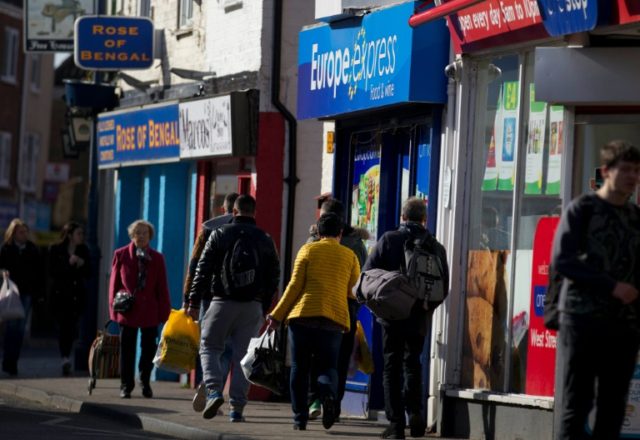Boston (United Kingdom) (AFP) – Eastern European immigrants in Britain’s Brexit capital are defiant despite over three quarters of locals voting to leave the EU.
“Are British people going to the factory working? I don’t think so,” said Aurelia, a Lithuanian factory worker in the town of Boston, near England’s east coast.
“I’m not scared. This referendum, for me — no problem,” added the 28-year-old of Britain’s vote to leave the European Union last Thursday.
The historic Lincolnshire market town has changed dramatically since eight ex-communist nations entered the EU in 2004, with thousands chiefly from Poland, Latvia and Lithuania drawn by ready work in England’s food-producing heartland.
Twelve years on, Boston is the most eastern European town in Britain. Its population hailing from the eight new EU countries had surged to 10.6 percent by the time of the 2011 census.
The vote to leave the bloc won by its highest margin in Boston, at 75.6 percent.
Despite the town’s rejection — undoubtedly fuelled by the immigration issue — east Europeans such as Aurelia, who was eating dumplings in a Lithuanian restaurant, feel completely convinced that their future remains in Lincolnshire.
Piotr Untermann, 35, who is Boston’s longest-serving Polish taxi driver, said: “Polish people are not bothered. They are not scared.
– ‘I’m having an English baby’ –
“I know they cannot do anything because I’ve lived here 11 years. My daughter, she has a British passport. I pay taxes, I have my life here, I have a mortgage.
“If they want me to leave, OK: give me money for my house I can leave straight away!” he laughed.
One young woman heading to a Polish butcher’s shop was completely unmoved by the stark local referendum vote.
“For me, it doesn’t matter. My boyfriend is English and we are not bothered about that. And I’m having an English baby,” she said, patting her midriff but declining to give her name.
And Jeff, 28, a fork lift driver from Lithuania, also felt on solid ground despite Thursday’s momentous national vote.
“If everybody goes home, who will work here?” he asked.
“I’ve lived here nine years, I spend my money here. I pay tax, everything here. I’m not taking anything out,” he added.
Boston’s shopping streets are dotted with Polish bakeries, Lithuanian eateries and outlets servicing the eastern European population.
Both Bostonians and eastern Europeans alike talk of different communities living separate lives: working, eating and socialising apart.
In a study in January, the Policy Exchange think-tank found Boston was the least-integrated town in Britain.
“I know many English but I also know people who don’t want to interact with the English,” said Untermann.
“We work hard — we have no time to socialise!” he joked.
– ‘They’ve taken over’ –
The pace of demographic change in Boston has been intense.
Between 2001 and 2011, its foreign-born population grew by 467 percent, according to Oxford University’s Migration Observatory.
“It feels like they’ve taken over,” said Woody, 45, an ex-serviceman.
“There’s no communication. Everyone’s talking foreign languages walking past you. You think, ‘am I really in Boston?’
“It’s got worse as the years have gone by.
“They do work hard, I’ll give them that. But I’ve been out of work for years. Everything’s been taken up.”
Woody feels the referendum will change nothing.
“They’re over here now, they’ve got roots and once they start having kids, they’re classed as British, so you can’t win. That’s it. Knackered,” he said.
Lewis Coles, 19, wearing a Great Britain cycling top, said many people had voted Leave “because of the immigration.”
“Which is stupid because you’re not actually thinking about your future, you’re thinking about other people’s,” he added.

COMMENTS
Please let us know if you're having issues with commenting.